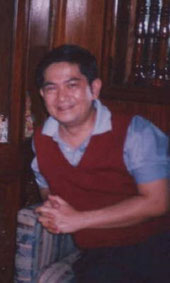Self-Study Guide to General Psychology
INTRODUCTION to PSYCHOLOGY
A. Know the ETYMOLOGICAL and MODERN DEFINITIONS of PSYCHOLOGY. Explain its definitions. Provide and defend your own definition.
B. Know the GOALS of PSYCHOLOGY. Provide a description for each goal.
C. Describe the different SCHOOLS of PSYCHOLOGY. Know their proponents and the main ideas associated with them.
1. Structuralism
2. Functionalism
3. Gestalt Psychology
4. Behaviorism
5. Psychoanalysis
6. Cognitive Psychology
7. Humanistic Psychology
D. Describe the various FIELDS of PSYCHOLOGY. Make a hierarchical arrangement of these fields and find the distinguishing feature of each field.
1. Social Psychology
2. Counseling Psychology
3. Educational Psychology
4. Developmental Psychology
5. Personality Psychology
6. Industrial Psychology
7. Clinical Psychology
8. Psychometrics
9. Others
E. Explain the uses of the METHODS of RESEARCH. Give one example --- that was actually utilized in research --- for each.
1. Survey Method
2. Observation Method
3. Experimental Method
4. Clinical Method
5. Interview Method
F. Know the IMPORTANT PEOPLE in PSYCHOLOGY and their contributions.
1. Aristotle
2. Rene Descartes
3. Thomas Hobbes
4. Ernst Weber
5. Hermann von Helmholtz
6. Charles Darwin
7. Gustav Fechner
8. Sir Francis Galton
9. Wilhelm Wundt
10. William James
11. Edward Titchener
12. Edward Thorndike
13. Sigmund Freud
14. Alfred Binet and Theodore Simon
15. Ivan Pavlov
16. William McDougall
17. John B. Watson
18. Wolfgang Kohler
19. B. F. Skinner
20. Jean Piaget
21. Others
PHYSIOLOGICAL BASIS of HUMAN BEHAVIOR
A. Know and draw the PARTS of a NEURON and identify the different TYPES of NEURONS.
B. Know the STRUCTURE of the NERVOUS SYSTEM.
C. Describe the PARTS of the CENTRAL NERVOUS SYSTEM and define their functions.
1. Spinal Cord
2. Brain: 2.1. Hindbrain, 2.2. Midbrain and 2.3. Forebrain
D. Know the PARTS of the PERIPHERAL NERVOUS SYSTEM and define their functions.
1. Somatic Nervous System
2. Autonomic Nervous System
E. Describe the ENDOCRINE SYSTEM, match the glands to the hormones they secrete, and know the roles they play in human growth and development.
1. Pituitary Gland
2. Thyroid Gland
3. Parathyroid Glands
4. Adrenal Glands
5. Islets of Langerhans
6. Gonads
 Hearts Philippines & Then Some
Hearts Philippines & Then Some




